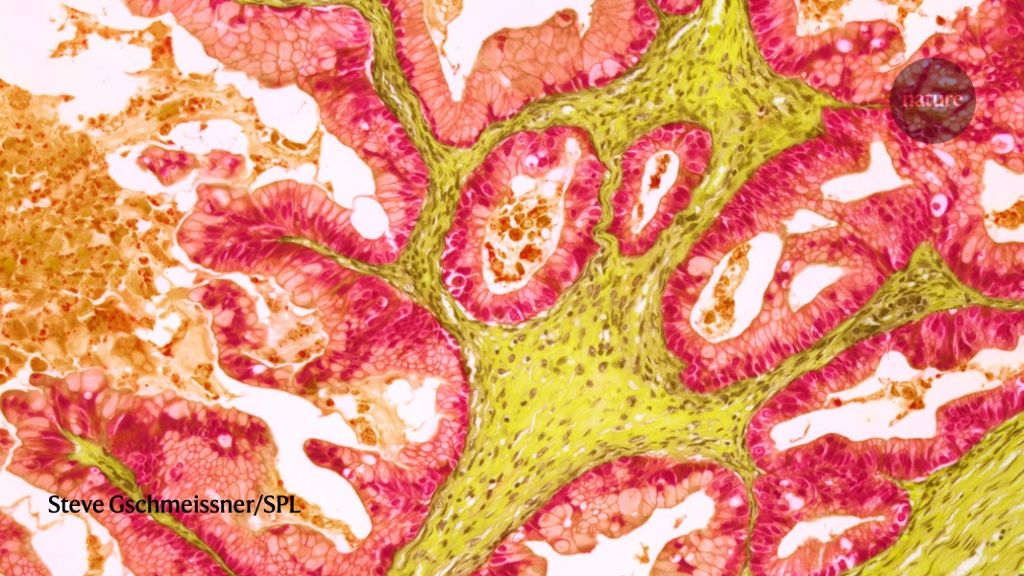Ovarian cancer that has become resistant to chemotherapy could be resensitized by blocking a single step in a cell pathway. Credit: Steve Gschmeissner/SPL
Cancer
Chemotherapy can make ovarian cancer cells resistant to further treatment, but blocking a particular cellular pathway could render them sensitive again, according to a study in cells collected from people and then grown in a laboratory.
Most advanced cancers, including ovarian cancers, eventually become resistant to therapy. Kaisa Lehti at the Karolinska Institute in Stockholm and her colleagues treated ovarian cancer cells with one of two platinum-based chemotherapies: cisplatin or carboplatin. They found that the drugs activated a cellular pathway that enabled tumour cells to become resistant to treatment.
This pathway is mediated by the addition of a phosphate group to a protein called EphA2. Blocking that chemical modification reduced the viability of ovarian cancer cells. Furthermore, combining chemotherapy with an inhibitor of a protein called RSK, which works in the pathway with EphA2, caused cancer cells to self-destruct, both when grown in cultures and when grown in mice.

